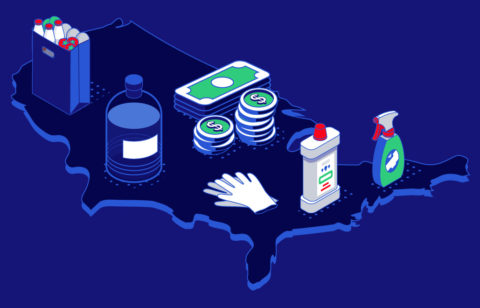The first thing practically every book on personal finance preaches is “do not borrow money,” “do not get in debt,” “shun debt like the plague,” etc. And in most cases, this is good advice. When you borrow money, you are really borrowing from a future you. Sure, you need the funds now. But it might not seem like such a good idea several years down the road if you are still struggling to repay it. Debt is basically a financial parasite that sucks money out of your future earnings— leaving you with less to save or spend.
But the fact is that there are times when borrowing money makes sense and is your best option.
#1. When you can’t pay big medical bills
No matter how diligently you plan your finances, a medical emergency can cause them to spiral out of control. Good news: the three credit bureaus recently changed the way they handle medical bills. You now have one year to address your debt before it is added to your credit reports. This buys you time if you can’t cover a medical bill or work out a repayment plan with your healthcare provider. You can devise a new plan, like taking out a personal loan to pay them off. You could also consolidate your debt to one new loan with a lower interest rate.
Borrowing money might not be an optimal solution to pay those medical bills, but it is a much better option than seeing them taint your credit reports. It is imperative that you make the personal loan payments on time and in full. Your credit score could plummet if you don’t.
People Also Read
#2. When you can’t afford your moving costs
Moving can be one of the most stressful events in your life. This is especially true when you consider the expenses associated with it. In addition to paying the mover, you will need to purchase boxes, storage, and transportation. And let’s not forget those little unexpected costs that always seem to pop up. According to the American Moving and Storage Association, a local move could cost about $2,300, while an out-of-state move could cost about $5,000 or more.
Taking out a personal loan to cover your moving expenses will cost you less in the long run. You will pay a much lower interest rate than if you put it on a credit card. Check the back of your most recent credit card statement to see your current interest rate. You may be shocked to find that it is 15% or even higher in comparison to a personal loan. It makes sense to get a small personal loan with a lower interest rate and simple interest that is only calculated on the principal amount.
#3. When you are saving money but carrying debt
If you are carrying debt but trying to save money at the same time, it is a losing proposition. One website recently published a list of the 10 best savings accounts for 2022—the top one offered an APR of 0.01%. Now compare that with what you are paying on your credit card debts, which probably averages 15% or more. This suggests that a better solution would be to take out a personal loan to pay off those credit card debts.
Then focus on paying off that personal loan since missed payments can harm your credit score. If you could pay it off in a year or two, you would have a lot more money to sock away in a savings account or to invest.
#4. When you can’t pay a car repair bill
It is tough to earn a living if you don’t have access to a reliable automobile. If you had a car accident that was not covered by your insurance or an unexpected repair bill, how would you get around? If you are unable to work out an affordable repayment plan with the car shop, a better option could be to take out a personal loan to pay for the work. Again, this is a much better option than putting it on a credit card since the loan will most likely charge a lower interest rate.
In addition, when you can’t cover a credit card payment at the end of the month, you become the victim of compounding interest. This is where credit card companies make the real money because you are paying interest on interest. In comparison, personal loans are based on simple interest.
#5. When you want to make home improvements but don’t have enough equity
Do you know how much equity you have in your home? If you are not familiar with equity, it is the difference between what your home is worth and what you owe on your mortgage. As an example, if your house was worth $100,000 but you owed only $80,000 on your mortgage, you would have $20,000 in equity. If this is the case for you, you can take out a home equity loan or homeowner equity line of credit to finance home improvements.
For example, you might want to update your kitchen, add a pool or replace your roof. Taking out a personal loan is a smart option since it almost always adds value to your home.
A tool for managing your finances
When a personal loan is used for the right reasons — including a low-interest rate and debt consolidation— it can be a great tool to help you manage your finances. However, it is important to carefully think things through or sit down with a lender or advisor to discuss your options.









